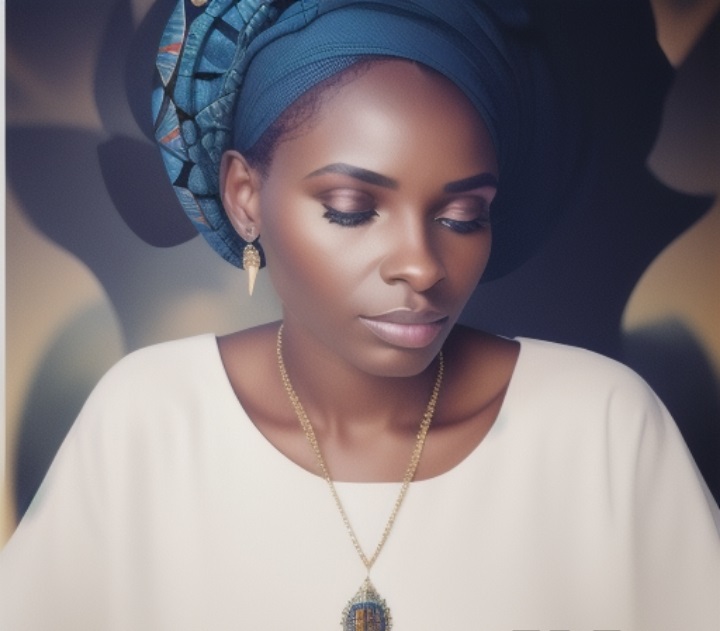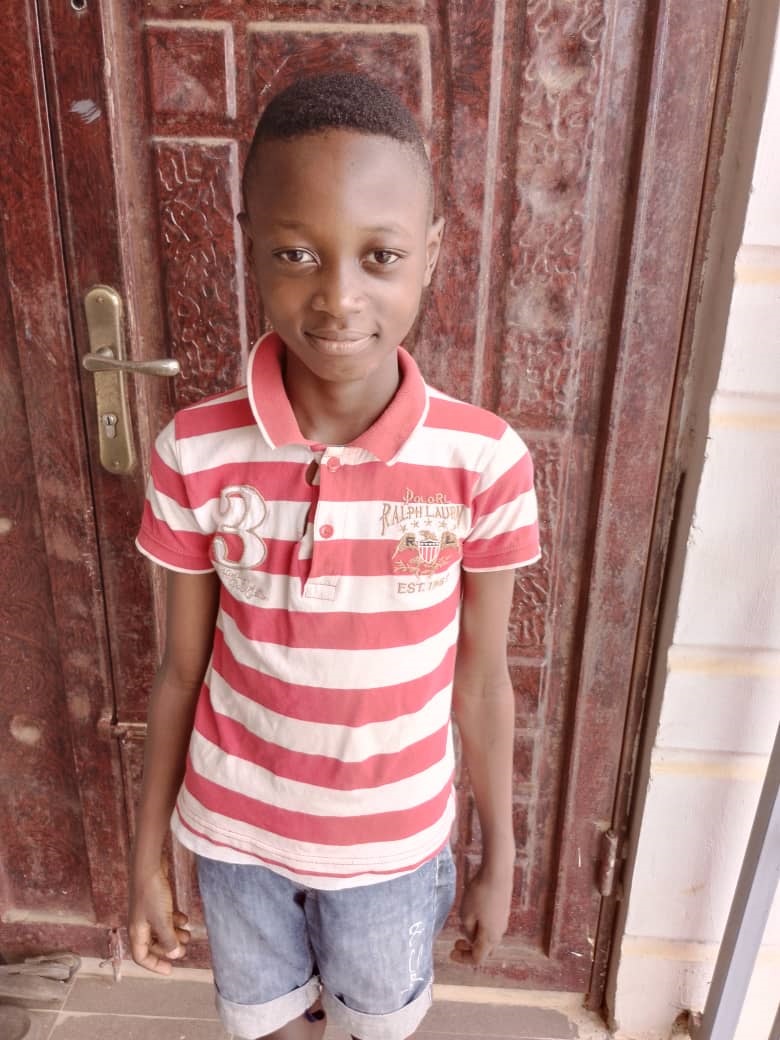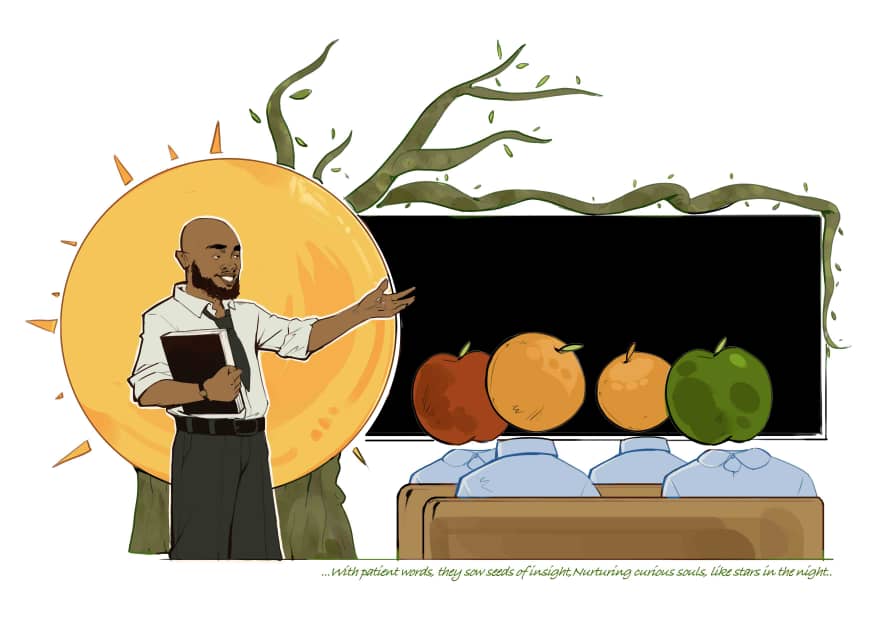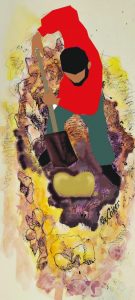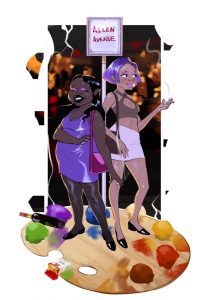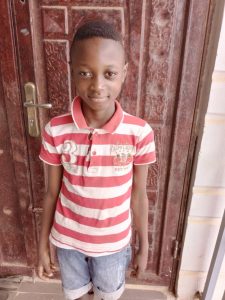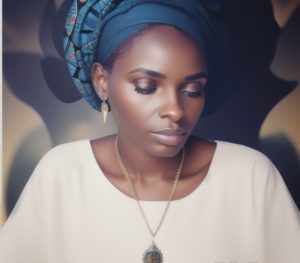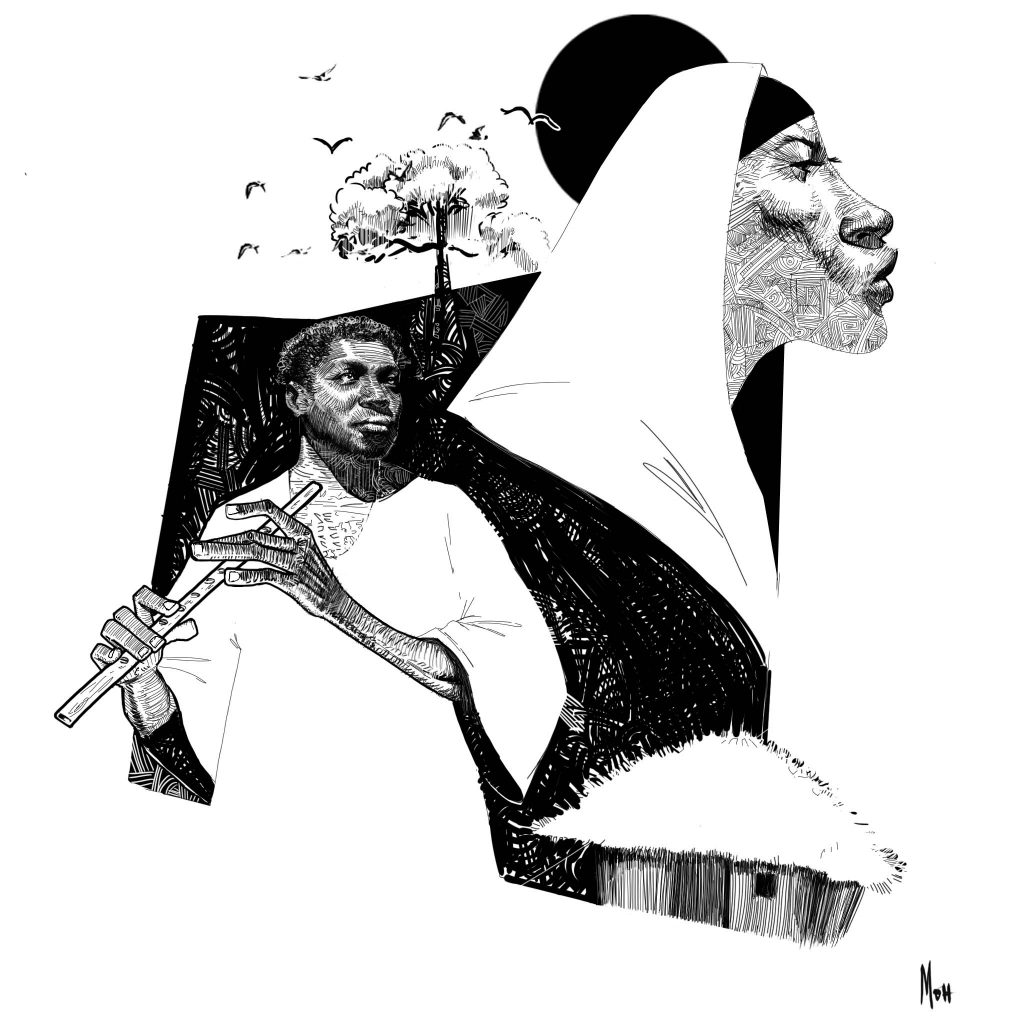
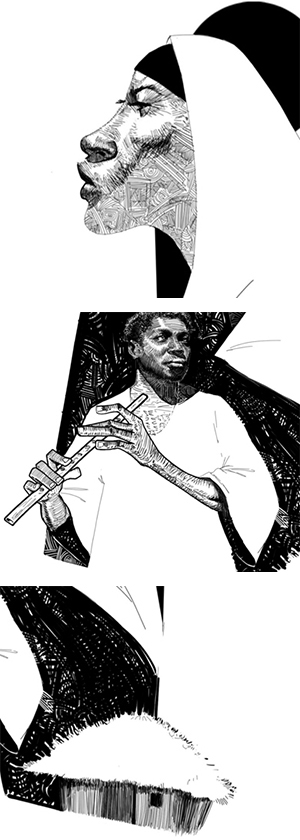
Playing my flute by the river bank
Your ebony skin is illuminated by the dim moonlight
Oblivious of the many eyes that gaze from the huts
Your gap teeth did reveal to my admiration
Only to slip away like a scared mouse into the woods
But gibberish in thought I do persevere
To melt this heart of stone
Listen to the melody I play!
Can’t you hear the flutters of the doves?
Listen to the nightingales
Serenading you and me in love symphony
Together let’s dance to the rhythm
The thread that links all faiths lets nurture in harmony
And global peace for mankind the birds tweet
Consider your rigid ways for we have not the whole time
Every minute of my wait is torturous
Every hour of your gaze fills my space
Every day I long for you
Let not our tribes divide
Nor our religious differences to destroy
Lest humanity be doomed
In vain I wait for the tide to come
And my bounty to reveal
Unlock this temple gate to your heart of stone
That, in you my rib to find and be forever cleaved as one
Let the universal string that binds all faiths strengthen us
Men of all tribes and creeds to endure
And this cacophony to my flute I plead you end
APPRECIATING THE POEM
This is a love poem directed at a young lady whom the speaker is persuading to love him. Rather than loving him in return, the lady remains adamant because of their religious and tribal differences.
In The Heart of Stone, Jide Fashoyin takes the conventional plea for love to new heights.
In the poem, the speaker muses, and the reader is instantly conducted into a pristine setting where a beautiful maiden is admired and he is using his flute to gain her attention.
The poem is arranged in four verses with each one of them having seven lines.
The first verse opens with attempts at seducing the lady by playing his flute while admiring her features. The speaker is enchanted by the beauty and elegance of the lady who could not love him based on some differences that give him the pain of rejection Rather than yield to his advances she scampers away.
The second verse draws the attention of the lady to what was playing out around them. The birds give credence to the speaker’s desire in their actions as the speaker invites her to a dance to their delight.
The third in the third verse, the speaker pleads with the lady to stop being stubborn and to change her impression that their religious and tribal differences are reasons they cannot be in love. The writer feels religious or tribal differences are fault lines for human peaceful coexistence.
The fourth verse: The writer makes a final plea urging the lady to let him into her heart and declared his readiness to marry her if given the opportunity. He tells her that ethnic and religious differences should not be a barrier to true love but that humanity benefits when love conquers all.
Setting: The speaker muses in a pristine setting like a village, close by the riverside where he was blowing his flute to draw the attention of the lady whose ebony skin is illuminated by the moonlight. He went further to describe how her dentition was also an attraction for him and almost at once the reader is conducted into his frustrations of not getting a positive response to his proposals urging that the lady should not allow their differences in tribe or religion to be a barrier. She had to disappear through the huts instead of responding to his request.
Symbolisms: The use of doves and nightingale symbolize love and peace; the huts and river symbolize purity.
In the description of the lady’s beauty, she is said to have a gap teeth which symbolizes beauty and luck among Nigerians, especially the Yoruba tribe. The French call gap teeth “dents du bonheur,” which translates to “lucky teeth.”
Figures of speech: There is the use of Simile when the lady is indirectly compared to a scared mouse as she slipped away.
The lady’s heart is metaphorically compared to a stone that is difficult to penetrate.
Music: The poet uses words that convey music. Symphony, harmony, cacophony, rhythm.
Onomatopoeia: flutters of the doves, Birds tweet.
Allusions: The speaker makes an allusion to the beginning of marriage as enunciated in the Holy Bible.
That, in you my rib to find and forever cleaved as one.


